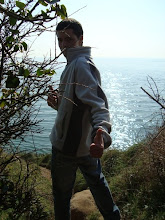Ms Peifer
English 10 IB Hour 5
11/26/08
Antigone
Through out the play of Antigone, the image of death, and rotting corpses are repeated. When Creon firsts enters the play he said about Polyneices, "He'll be left unburied, his body there for birds and dogs to eat, a clear reminder of his shameful fate. That's my decision. For I'll never act to respect an evil man with honours in preference to a man who's acted well" (Sophocles 234-239). This image shows how Creon will have no mercy for those who have done wrong to their country. That they will be given no burial rights, and be left to die while their corpse gets eaten by wild animals.
Creon has the most flaws out of any of the characters in the play Antigone. His biggest flaws are how stubborn he is. He believes that everything he says and does is correct and no one can tell him otherwise. Such as when he is talking to Antigone after she has pleaded guilty to burring Polyneices, he says to her, "And yet you dared to defy the law" (Sophocles 823). He is believing that his law his high above everything else in existence. Creon also believes that his word is better then a profit. While talking to the blind profit Teiresias, he says, "No doubt. Speak: whatever you say, you will not challenge my will" (Sophocles 837). Tieresias was trying to help Creon change his mind before he made a mistake that would take the life of his loved ones.
Anagnorisis happens after Creon is finished talking with Tieresias. Creon desides to go and set free Antigone and make amends for what he has done. The messenger stops him before and tells him that his son Hamion has committed suicide because he was angry at his father for everything he has done. It is also mentioned that Creon's wife is also dead. He has an epiphany when he realizes that he has know to support him anymore, that he wishes that he could die just to be with his family. No matter how bad Creon has acted through out the play, the audience's feelings turn to sadness at Creon's loss. That's where catharisis happens in the play after Creon has realized what his laws has done to his family. Creon really doesn't have a peripeteia because he can not change the past, he can not bring back his loved ones from the dead. There is no change in fortune for him. Only sadness and misery.
Women in the play might be seen as anarchists through the acts of Antigone burying Polyneices. Though they could be shown as disciples following the acts of the Greek gods and goddesses. Yes, Antigone did break the law. However, she broke a law that was set down by a mortal king. Antigone could have been doing her duty to the gods assuring them that Polyneices got to the after life. She could have been obeying the law of a higher power.

No comments:
Post a Comment